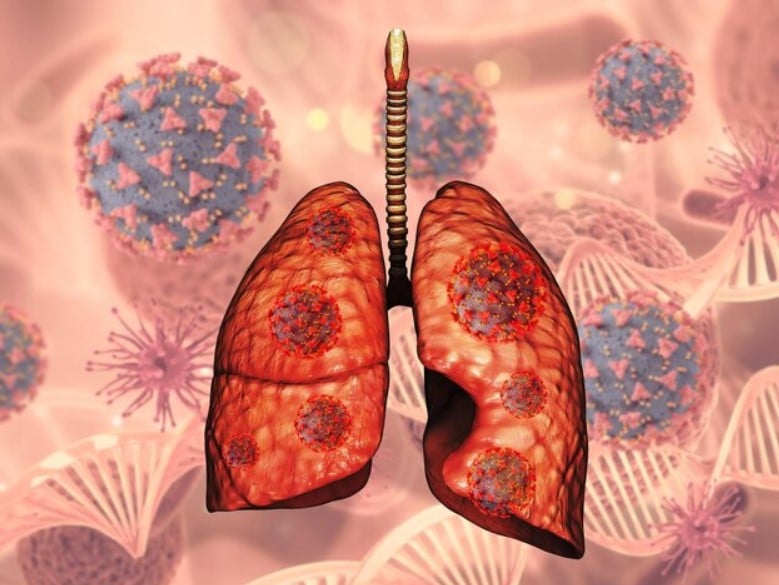Mesothelioma lawsuits have been making the rounds lately, and if it’s causing you to wonder if you might have this disease, there are several things you can do. In this article, we’ll cover the mesothelioma symptoms you should be concerned about, along with what steps you should take to get proper treatment.
What is mesothelioma?
Mesothelioma is a rare, but aggressive form of cancer caused by asbestos exposure. Although asbestos is a naturally occurring mineral that has been used for its heat-resistant properties for decades, it’s extremely dangerous to inhale or ingest.

The fibers are sharp, which causes them to get stuck in bodily tissue for long periods of time. This creates chronic inflammation that eventually leads to tumors.
Symptoms
In general, mesothelioma primarily presents as fluid buildup and pain in the area where the tumor is located. For example, in the stomach, chest, heart, or testicles. Additional symptoms include:
- Shortness of breath
- Trouble swallowing
- Persistent coughing
- Fever
- Nausea
- Fatigue
- Weight loss
Depending on the location of the tumor, your symptoms will be slightly different and unique to that location. For instance, pleural mesothelioma often includes chest pain, fluid build up in the chest, and a persistent cough.
If you have peritoneal mesothelioma, the pain and fluid buildup will be in your abdomen, you might lose weight for no apparent reason, and lose your appetite.
Pericardial mesothelioma targets the lining around the heart. The symptoms include pericardium fluid buildup, chest pain, and heart murmurs.
Experiencing symptoms? See a mesothelioma specialist immediately.
The most important thing to do first is to see a doctor right away. Don’t wait because the longer you put it off, the worse your symptoms will get, and the more your disease will progress. Even if it turns out that you don’t have mesothelioma, you should never put off going to the doctor for serious symptoms.
Make sure you visit a doctor who specializes in mesothelioma rather than a regular physician because general practitioners won’t know what signs to look for, and the symptoms you present can look like pneumonia. That’s why it’s difficult for a non-specialist to diagnose mesothelioma. Specialists are experts and see things other medical professionals won’t notice.
If you’ve already seen a doctor and they diagnosed you with something else, it won’t hurt to schedule an appointment with a specialist to get a second opinion.
The 4 Types of Mesothelioma
There are four forms of mesothelioma cancer.
1. Pleural mesothelioma
About 80% of all cases are pleural mesothelioma, which is caused by inhaling asbestos fibers. Since the fibers are sharp, they get lodged in lung lining tissue (the pleura) where they create chronic inflammation until cancer eventually develops. As a result of thickening tissue, the lungs can’t fully expand, which makes it painful to breathe.
Pleural mesothelioma is often confused for pneumonia, the flu, and chronic pulmonary obstructive disease (COPD) since they share symptoms.
2. Peritoneal mesothelioma
About 20% of all cases are peritoneal mesothelioma. This form is caused by ingesting asbestos particles. Once they reach the stomach, the fibers attach themselves to the abdomen lining and create the chronic inflammation that causes cancer.
Unlike other forms, peritoneal mesothelioma has abdomen-specific symptoms, like blood clots, fatigue, and unexplained weight loss.
3. Pericardial mesothelioma
Accounting for 1% or less of all cases, pericardial mesothelioma occurs when asbestos fibers reach the pericardium (the heart’s lining) and can metastasize to the lungs and liver. The cause is unclear since there are so few cases reported.
4. Testicular mesothelioma
As the most rare type of mesothelioma (accounting for far less than 1% of all cases), doctors don’t know how exposure can cause this type of cancer to form in the testicles. However, it’s important to know the symptoms.
Testicular mesothelioma results in nodules on the tunica vaginalis of the testicles (the lining) as well as fluid buildup. It’s often misdiagnosed as a hernia because the symptoms aren’t unique to testicular mesothelioma. Generally, it takes surgery to diagnose properly.
Next Steps After a Mesothelioma Diagnosis
If a specialist ends up diagnosing you with mesothelioma, the first thing you need to do is get treatment, which might include surgery. Your specialist will make sure you understand all of your options.
Once you have a treatment plan in place, contact a mesothelioma lawyer to discuss your case. Thousands of people have already won million-dollar settlements and multi-million dollar jury awards. If you have mesothelioma, you deserve compensation, so don’t wait to contact an attorney to see what your case is worth.
